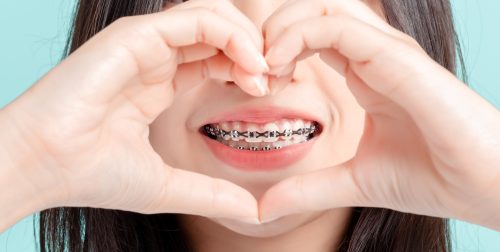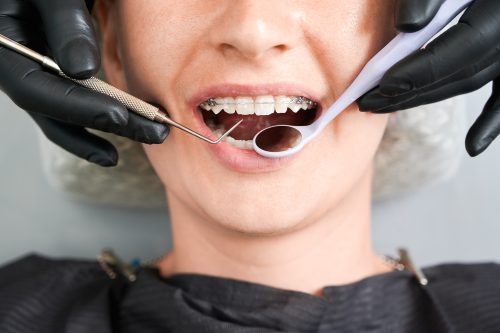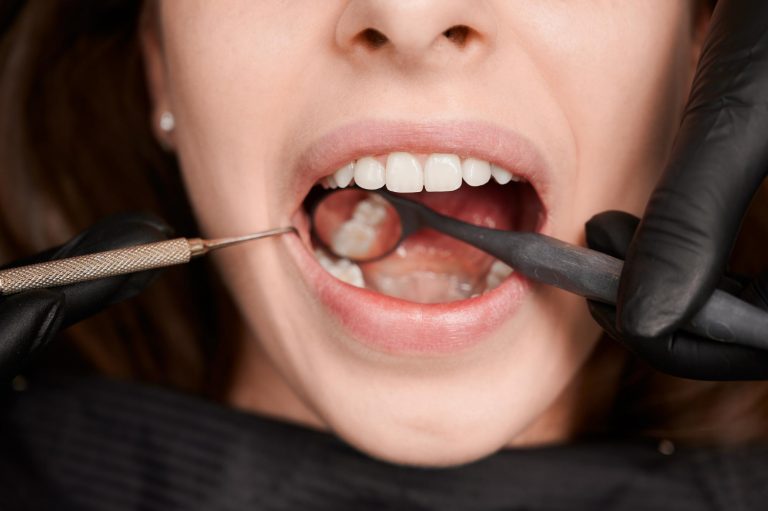Dealing with dental braces discomfort can be challenging, especially when the soreness and pressure make daily tasks tougher. Small adjustments and simple remedies can make a big difference. Here’s how to ease the pain, protect sensitive areas, and keep discomfort in check.
Understanding Why Braces Cause Discomfort

Braces work by applying gentle, consistent pressure to gradually move teeth into alignment. This steady force often causes discomfort, especially right after adjustments. As the teeth shift, soreness and sensitivity are common. Brackets and wires may also rub against the gums and cheeks, leading to irritation. Recognising these causes helps prepare for managing the discomfort that comes with braces.
Simple Ways to Soothe Braces Pain at Home
Cold Compress or Ice Pack
Applying a cold compress can bring relief by numbing soreness and reducing inflammation. Place an ice pack wrapped in a cloth on the cheeks near the sore areas for a few minutes. This cooling effect helps calm the irritated tissues and can be repeated throughout the day to manage pain.
Saltwater Rinse
Rinsing with warm saltwater helps reduce irritation and swelling in the mouth. To prepare, dissolve a teaspoon of salt in a glass of warm water. Swish the solution in the mouth for about 30 seconds, focusing on sore spots, then spit it out. This simple rinse soothes gum tissues and helps keep the mouth clean, reducing the risk of infection from irritation.
Products to Help Relieve Pain from Braces
Orthodontic Wax
Orthodontic wax offers a quick way to protect sensitive areas from sharp brackets or wires. To apply, pinch a small piece of wax, roll it between your fingers to soften it, and press it over the brackets or wires that cause irritation. The wax creates a smooth barrier, reducing friction and allowing sore areas to heal faster.
Over-the-Counter Pain Relief Options
Mild pain relievers, like ibuprofen, can effectively manage braces discomfort, especially right after adjustments. These medications reduce inflammation and help relieve soreness. It’s always best to consult your dentist before using any new medication to ensure it’s safe for you. Follow the dosage instructions carefully to avoid any potential side effects.
Adapting Your Diet During Adjustment Periods

Diet plays a big role in managing braces discomfort, especially after adjustments. Choosing the right foods can help reduce pressure on your teeth and gums.
Choosing Soft Foods
Soft foods make it easier to eat without causing additional pain. Go for options like mashed potatoes, yogurt, scrambled eggs, and smoothies. Soups and pasta also work well and are gentle on sore teeth. Avoid crunchy, sticky, or chewy foods, which can aggravate pain and put undue pressure on the braces. Foods like popcorn, chips, and chewy candies should be off the list, especially right after an adjustment.
Hydrating Often
Drinking plenty of water helps keep your mouth hydrated, which reduces inflammation and soothes sore tissues. A well-hydrated mouth also encourages saliva production, which can help wash away any small particles caught in the braces. Sip water regularly throughout the day, especially when soreness peaks.
Managing Discomfort While Sleeping
Proper sleep can ease braces pain, and adjusting your sleep setup helps reduce discomfort overnight.
Sleep Position Adjustments
Choose a sleeping position that avoids direct pressure on the braces. If you tend to sleep on your side, try placing a soft pillow under your cheek to keep it cushioned. Adding an extra pillow can also help minimize movement during sleep, allowing sore spots to rest undisturbed. Experiment with positions until you find one that limits pressure on your braces.
Nighttime Wax Application
Apply orthodontic wax before bed to create a barrier between your braces and the inside of your mouth. Roll a small piece of wax and press it over any sharp brackets or wires that tend to cause irritation. This simple step reduces nighttime friction and prevents waking up with fresh sores.
When to Consult Your Orthodontist

In some cases, braces discomfort can signal a bigger issue that needs attention. Severe pain or visible issues like protruding wires aren’t typical and may need an orthodontist’s intervention. If pain becomes hard to manage with home remedies or over-the-counter pain relievers, reach out for a professional opinion. Regular checkups also help catch any minor issues before they escalate, ensuring your treatment stays on track.
Choose Avenue Dental Care for Comfortable, Quality Family Dental Care
Looking for a dental team that truly cares? Avenue Dental Care, your trusted Spokane family dentists, offers a friendly environment with top-notch dental services for all ages. We focus on making each visit as comfortable and personalized as possible, whether you need routine care, cosmetic enhancements, or emergency services. From the latest dental technology to our compassionate, highly skilled team, we’re here to provide the care you deserve.
Experience why our patients call us “kind, patient, and informative,” and enjoy comprehensive dental services tailored to meet your needs. With convenient locations in North Spokane and Spokane Valley, we make it easy to access the care you need, when you need it.
Ready to Book Your Visit?
Call us today or click here to schedule your appointment and take the first step toward a healthier smile!
FAQs About Dental Braces Discomfort
How long does the pain from new braces usually last?
Most people experience soreness for a few days after getting braces or an adjustment. The discomfort typically peaks within 24-48 hours and gradually subsides over the next few days. If the pain continues beyond a week, consult your orthodontist.
Are there any foods that can make braces pain worse?
Yes, crunchy, sticky, or hard foods like chips, nuts, caramel, and tough meats can increase pain and even damage braces. Stick to soft foods, especially after adjustments, to avoid added discomfort.
Can mouth sores from braces heal on their own?
Mouth sores caused by braces often heal on their own within a week as your mouth adjusts. Using orthodontic wax, saltwater rinses, and staying hydrated can speed up the healing process. If sores persist or worsen, contact your orthodontist.
How often should I apply orthodontic wax to prevent pain?
Apply wax as often as needed, especially if you feel irritation from brackets or wires. Replace it daily or after eating, and remove any wax before brushing to keep your mouth clean and hygienic.
Is it normal to have trouble speaking after getting braces?
Yes, it’s common to experience slight speech difficulties when first getting braces. The adjustment period varies, but most people find their speech returns to normal within a few days to a couple of weeks as they become accustomed to the braces.
Can chewing gum help relieve braces pain?
Chewing gum is not generally recommended with braces, as it can get stuck in the brackets and wires, potentially causing damage. Some orthodontists may suggest sugar-free gum if it doesn’t stick, but it’s best to check with yours first.
Do braces cause headaches?
Yes, some people experience mild headaches after getting braces or adjustments due to the pressure on teeth and jaw. Over-the-counter pain relievers and resting often help alleviate this, but consult your orthodontist if headaches become frequent or intense.

